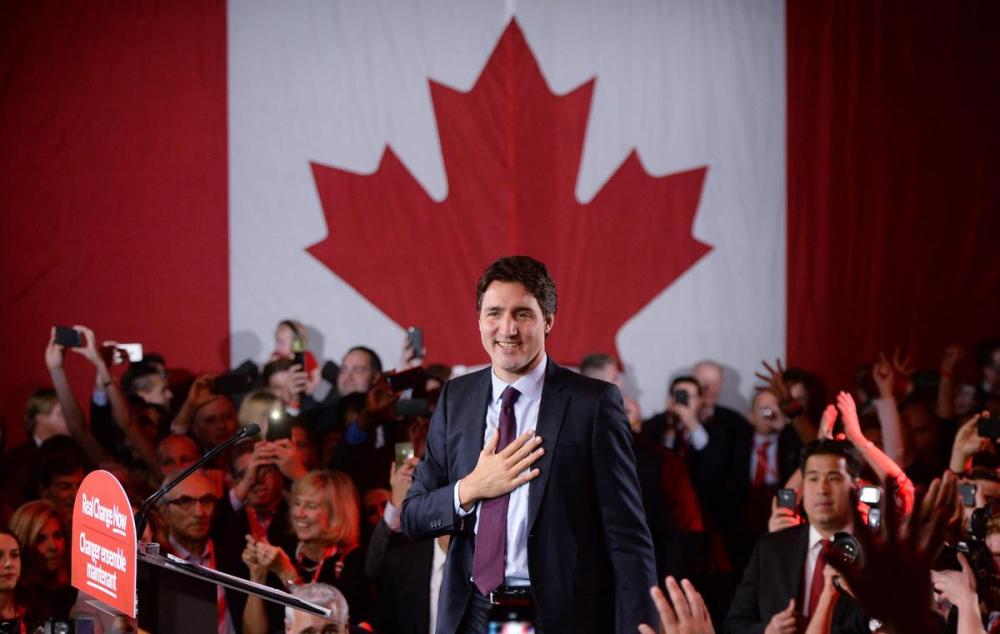Why Justin Trudeau’s expected election call could backfire
Advertisement
Read this article for free:
or
Already have an account? Log in here »
To continue reading, please subscribe:
Monthly Digital Subscription
$1 per week for 24 weeks*
- Enjoy unlimited reading on winnipegfreepress.com
- Read the E-Edition, our digital replica newspaper
- Access News Break, our award-winning app
- Play interactive puzzles
*Billed as $4 plus GST every four weeks. Offer only available to new and qualified returning subscribers. Cancel any time.
Read unlimited articles for free today:
or
Already have an account? Log in here »
Hey there, time traveller!
This article was published 12/08/2021 (1295 days ago), so information in it may no longer be current.
Prime Minister Justin Trudeau is poised to call an election as soon as Sunday. He thinks he can win a majority government. He may be badly wrong.
The Liberal government does not need a new mandate. The old one, as expressed just months ago in the throne speech and budget, is supported by a majority of MPs in the minority Parliament.
Certainly, the government’s minority status has not prevented it from taking bold action against the coronavirus.

Nor has it stopped the government from introducing one of the most significant new social programs in decades — a national child-care system.
With the support of the New Democrats and the Bloc Québécois, the Liberal minority government has spent billions.
It’s not clear that a majority Liberal government would have done more. In fact, it might well have done less.
If enough so-called progressives come to this conclusion, then Trudeau might lose this gamble: calling an election now might at best merely produce another minority Liberal government.
At worst, the Liberals could lose power altogether.
The polls do not show this. The polls have the Trudeau Liberals well in the lead.
But as Trudeau himself showed in 2015, polls can change dramatically during the course of an election campaign.
In this campaign, the pandemic is the wild card. The Liberal government can argue convincingly that its strategy worked — that its procurement policy produced enough vaccines to inoculate every eligible Canadian.
But all that could go for naught if Canada is hit by another wave of COVID-19.
It will be hard to argue that the government’s pandemic strategy is a success when people are dying from the fourth wave. And if the experts are right, we are on course for that wave, one dominated by the virulent Delta variant of the disease.
My guess is that if it comes to choosing whether to blame the Trudeau government for allowing the pandemic to fester, or praise it for encouraging vaccination, the voters will not be kind to the Liberals.
The Liberals understand this, which is why Trudeau wants to keep the campaign period to its legal 36-day minimum. They know they will do better if voters see this election as a simple choice between the status quo and the unknown, as represented by Erin O’Toole’s Conservatives.
In other words, the Liberals will do better if the voters can be kept from asking too many questions.
O’Toole is the other wild card. Polls show him well behind Trudeau in popularity. The election call gives him the chance to reverse that.
Many have dismissed O’Toole, arguing that the Conservatives are too badly split to provide him the support he needs.
They forget that the desire to oust the hated Liberals unites Conservatives of all kinds. They also forget that in the last election, even when saddled with unpopular leader Andrew Scheer, the Conservatives came within striking distance of power.
O’Toole has been mocked for pitching to unionized workers. His critics forget that many rank-and-file trade unionists are already small-c conservative and thus open to such blandishments.
In short, this is not a done deal. Trudeau is taking a gamble in calling this election at a time when the pandemic still threatens. He has yet to explain why, after navigating successfully through the shoals of minority government, he suddenly needs a Liberal majority.
In effect, he is running on his record. But he is also saying that this record is woefully insufficient.
Should the Liberals be given carte blanche in the Commons? That’s the central question of this campaign. So far, it remains unanswered.
Thomas Walkom is a Toronto-based freelance contributing columnist for the Star. Reach him via email: walkomtom@gmail.com


